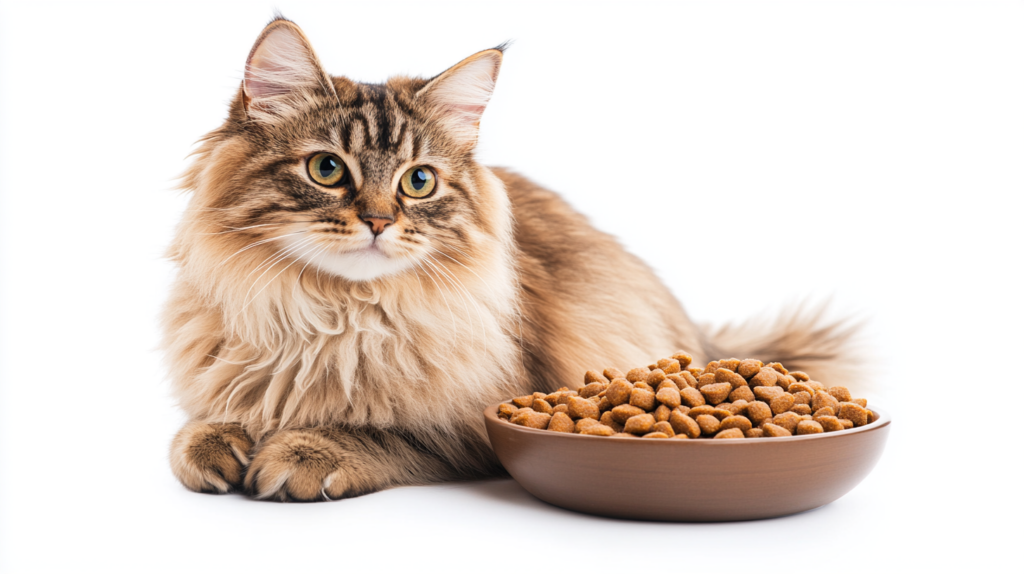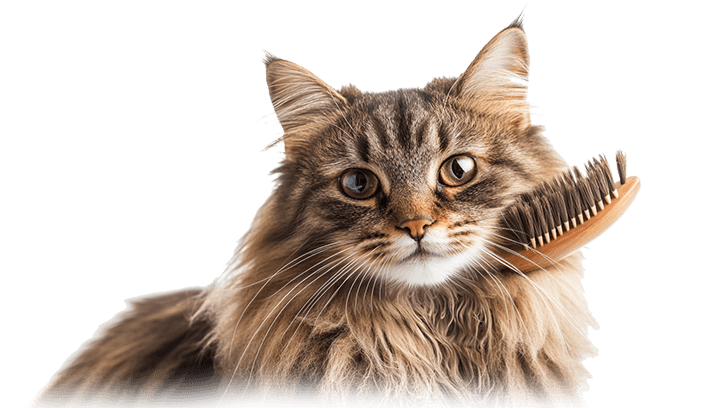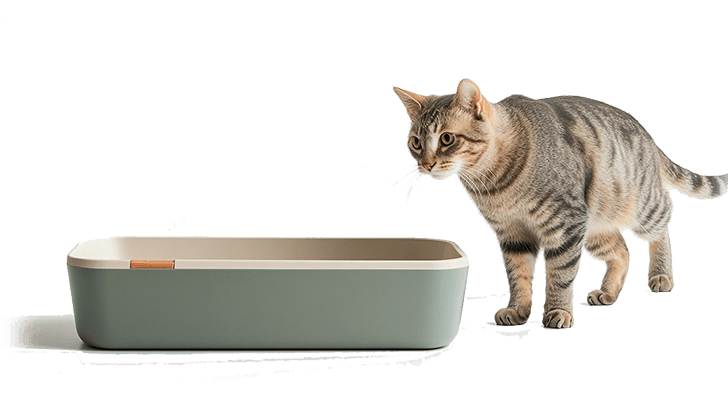Cat Care: The Ultimate Guide to Keeping Your Feline Friend Healthy and Happy
Cats may be known for their independence, but as pet owners, we play a vital role in their health and happiness. Whether you’re a first-time cat parent or an experienced cat lover, understanding the basics of cat care is essential to ensuring your furry companion thrives. Cats rely on us for proper nutrition, grooming, mental stimulation, and a safe environment that supports their natural behaviors. In this guide, we’ll explore everything you need to know to keep your cat healthy, happy, and living their best life.
General Cat Care Tips
Nutrition
A balanced diet is one of the most important aspects of your cat’s overall health. Cats are obligate carnivores, which means their bodies are designed to thrive on a meat-based diet. High-quality cat food, whether wet or dry, should provide all the essential nutrients, including protein, fats, vitamins, and minerals. Wet food is especially beneficial for keeping cats hydrated, as many cats don’t drink enough water on their own. Be sure to always provide fresh water, and avoid feeding your cat human foods, which can upset their digestion or even be toxic.
As cats age, their dietary needs may change. Kittens require food rich in calories and nutrients to support their growth, while senior cats may need food formulated for joint health or weight management. If you’re unsure about the best diet for your cat, consult your veterinarian for personalized recommendations.

Grooming
While cats are known for keeping themselves clean, they still benefit from regular grooming, especially long-haired breeds. Brushing your cat helps remove loose fur, reduces shedding, and prevents hairballs—an issue that can be particularly troublesome for cats with longer coats. Short-haired cats generally need to be brushed once a week, while long-haired breeds may require daily grooming to prevent tangles and mats.
Don’t forget to check your cat’s claws regularly. Cats love to scratch as a natural way of maintaining their claws, and providing scratching posts will help them keep their claws healthy while protecting your furniture. If your cat’s claws grow too long, they may become uncomfortable, so regular trimming is essential.

Litter Box Care
A clean litter box is crucial to your cat’s well-being. Cats are fastidious creatures and can be very particular about their litter box hygiene. Scoop the box daily to remove waste, and change the litter fully at least once a week. The litter box should be placed in a quiet, low-traffic area of your home to provide your cat with privacy and easy access. If you have multiple cats, it’s a good idea to have at least one litter box per cat, plus an extra, to avoid territorial issues or stress.
If you notice your cat avoiding the litter box, it may be a sign of a problem such as a dirty box, inappropriate litter, or even a health issue like a urinary tract infection. Monitor your cat’s behavior, and if litter box habits change, consider a visit to the vet.

Health and Vet Visits
Even if your cat seems perfectly healthy, regular veterinary check-ups are vital for catching any potential issues early. Cats are experts at hiding discomfort, and by the time they show obvious symptoms, a health problem could be well advanced. Annual check-ups allow your vet to assess your cat’s weight, teeth, ears, and coat while also providing vaccinations, flea treatments, and parasite control.
Dental health is especially important for cats, yet it’s often overlooked. Regular brushing of your cat’s teeth can prevent plaque buildup, gum disease, and bad breath. If brushing is difficult, talk to your vet about alternatives, such as dental treats or professional cleanings.
Exercise and Play
Cats are natural hunters, and even though they may spend a lot of time lounging, they still need regular exercise and play to stay physically fit and mentally stimulated. Engage your cat in daily play sessions with toys that mimic the movement of prey, such as feather wands, laser pointers, or small balls. Interactive play helps prevent obesity, keeps your cat agile, and satisfies their hunting instincts.
Rotating toys regularly can keep your cat interested and challenged. Puzzle feeders are also a great way to stimulate your cat’s mind during feeding time, as they encourage problem-solving and slow down fast eaters.

Creating a Safe Space
Every cat needs a space where they feel safe and secure. Whether it’s a cozy bed, a perch by the window, or a quiet corner of the room, giving your cat their own retreat can help reduce stress and provide comfort. Cats love to climb and observe their surroundings from high places, so consider providing a cat tree or shelves they can explore.
Safety also extends to your home environment. Ensure your house is free of potential hazards, such as poisonous plants, small objects that could be swallowed, or unsecured windows. If you have an outdoor cat, consider transitioning them to a safer indoor lifestyle or setting up a secure outdoor enclosure (catio) where they can enjoy the fresh air without the dangers of cars, predators, or disease.
Mental Stimulation
Cats are curious and intelligent animals that need mental stimulation to prevent boredom. Introducing new toys, rotating playthings, or teaching your cat simple tricks can provide them with enrichment. Puzzle toys and food dispensers are excellent tools to challenge their minds and provide both physical and mental activity during mealtime. Cats also enjoy interactive play with their owners, which strengthens the bond between you and your pet.
Explore Different Cat Breeds
Each cat breed has its own personality traits, care needs, and characteristics. Some cats are social and outgoing, while others are more independent and reserved. Understanding your cat’s breed can help you tailor their care and better meet their needs.
For example, Persian cats are known for their luxurious long coats, but they require daily grooming to prevent matting. Siamese cats, on the other hand, are highly vocal and social, often forming strong bonds with their owners and needing plenty of interaction. Maine Coons are large, gentle giants who benefit from regular grooming and a balanced diet to support their size, while Sphynx cats, known for their hairlessness, require frequent skin cleaning to keep their skin healthy.
If you’re thinking about adopting a specific breed or simply want to learn more about different types of cats, exploring breed characteristics can help you make informed decisions about your cat’s care.
Check out our guides to various cat breeds below, where we dive into the specific care tips, personalities, and needs of different species. From the playful Siamese to the laid-back Ragdoll, we’ll help you understand what makes each breed unique.
- Siamese Cats – Known for their striking blue eyes and vocal nature, Siamese cats are outgoing and love human interaction. Learn more about caring for this talkative breed and what they need to stay happy.
- Persian Cats – With their long, luxurious coats and calm demeanor, Persians are one of the most beloved breeds. Get tips on grooming and keeping your Persian cat comfortable.
- Maine Coon Cats – One of the largest cat breeds, Maine Coons are gentle giants with friendly personalities. Find out how to care for their thick coats and keep them active.
- Ragdoll Cats – Ragdolls are known for their relaxed, floppy nature and loving personalities. Learn more about this breed’s easy-going temperament and the best ways to keep them content.
- Bengal Cats – With their wild appearance and energetic behavior, Bengals need lots of stimulation. We’ll help you create the perfect environment for this lively breed.
Click on the links to learn more about the care and personality of each breed. We’ll be adding more breeds over time, so stay tuned for updates!
Conclusion—Caring for Your Cat’s Health and Happiness
Cats may be independent animals, but they depend on us to provide the care, love, and attention they need to thrive. By focusing on proper nutrition, regular grooming, a clean litter box, mental stimulation, and regular vet visits, you’ll ensure your feline friend leads a healthy, happy life. Whether you’re snuggling with your kitten or watching your senior cat bask in a sunbeam, the love and care you give will keep them purring for years to come.

